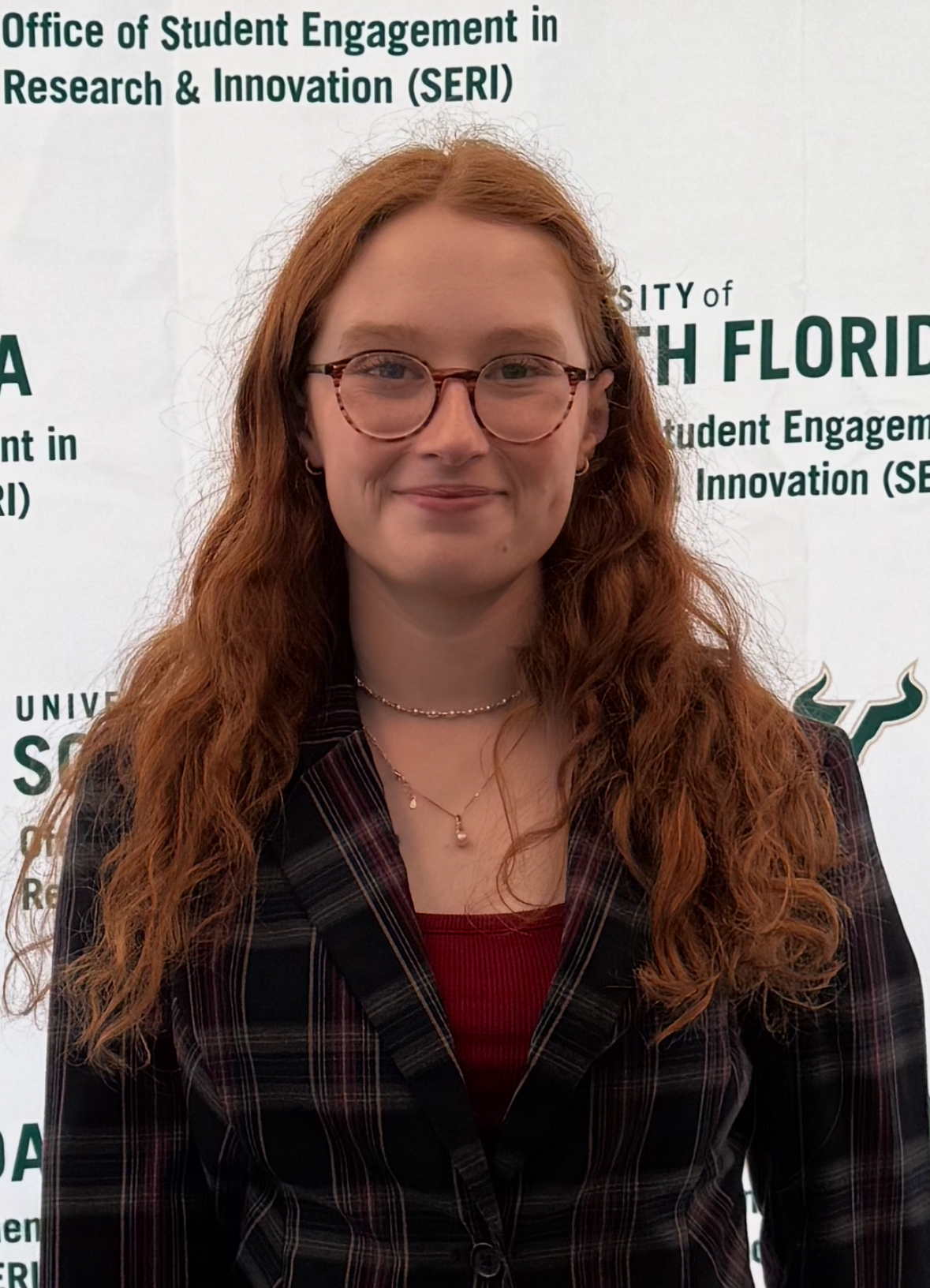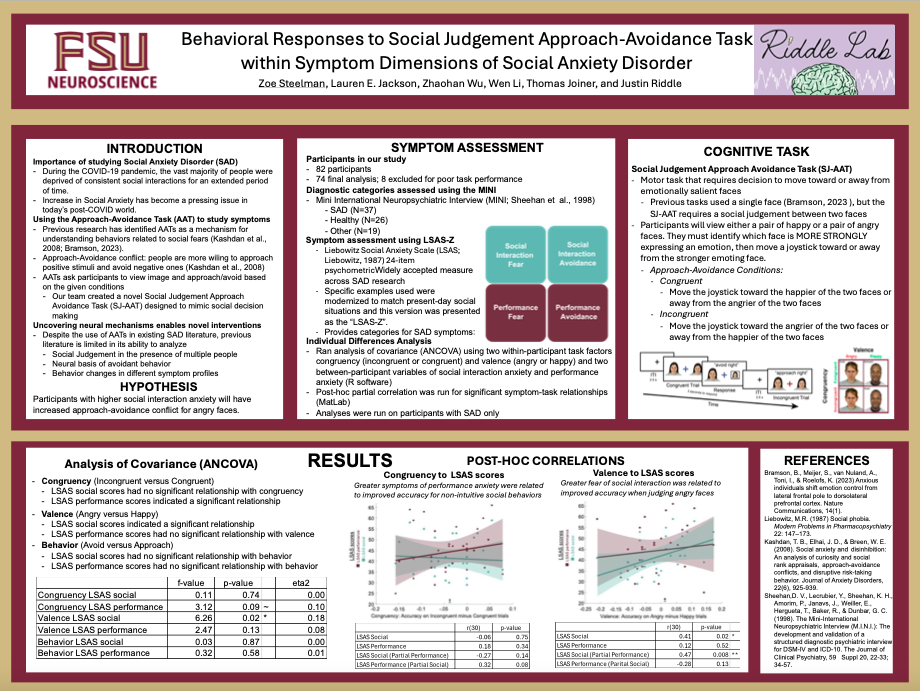Research Symposium
25th annual Undergraduate Research Symposium, April 1, 2025
Zoe Steelman Poster Session 4: 3:00 pm - 4:00 pm / Poster #277

BIO
Zoe is a Cell and Molecular Neuroscience Major, and she is proud to present research as part of her Honors in the Major project. She is also a Research Supervisor in the Riddle Lab, where she studies novel treatments for psychiatric illness. After furthering her research in cognitive control in anxiety and mood disorders, Zoe hopes to become a psychiatrist. Outside of research, she is a Unit Secretary in Tallahassee Memorial Healthcare's Surgical Care Unit.
Behavioral Responses to Social Judgement Approach-Avoidance Task within Symptom Dimensions of Social Anxiety Disorder
Authors: Zoe Steelman, Dr. Justin RiddleStudent Major: Cell and Molecular Neuroscience
Mentor: Dr. Justin Riddle
Mentor's Department: Neuroscience Mentor's College: Arts and Sciences Co-Presenters:
Abstract
Social Anxiety Disorder (SAD) is an increasingly prevalent topic since the COVID-19 pandemic. During the pandemic's initial stages, most people were deprived of consistent in-person interaction outside of their immediate family, increasing significant negative emotions around social situations. Previous research has identified several significant cognitive processes that contribute to SAD, including increased threat perception in the presence of ambiguous social cues and increased avoidance of these perceived threats. Approach-avoidance tasks (AATs) have been identified as a mechanism for understanding these behaviors; however, prior research designs have limited their ability to assess decision-making in the presence of multiple social cues. Our research lab designed the Social Judgement Approach-Avoidance Task (SJ-AAT), which asks participants to identify the intensity of emotional facial expressions in the presence of two faces and decide to approach or avoid based on this. Utilizing the Mini International Neuropsychiatric Interview (M.I.N.I.), participants with SAD were identified, and their symptom dimensions were categorized using the Liebowitz Social Anxiety Scale (LSAS). The symptom dimensions identified were fear of social interaction, avoidance of social interaction, fear of performance, and avoidance of performance. Based on previous literature, we hypothesized that participants with higher social interaction anxiety would have an increased approach-avoidance conflict for angry faces. Results indicate that participants with greater fear of social interaction instead had improved accuracy in assessing angry faces, regardless of congruency with typical social behaviors.
Keywords: Neuroscience, Anxiety, Cognition


